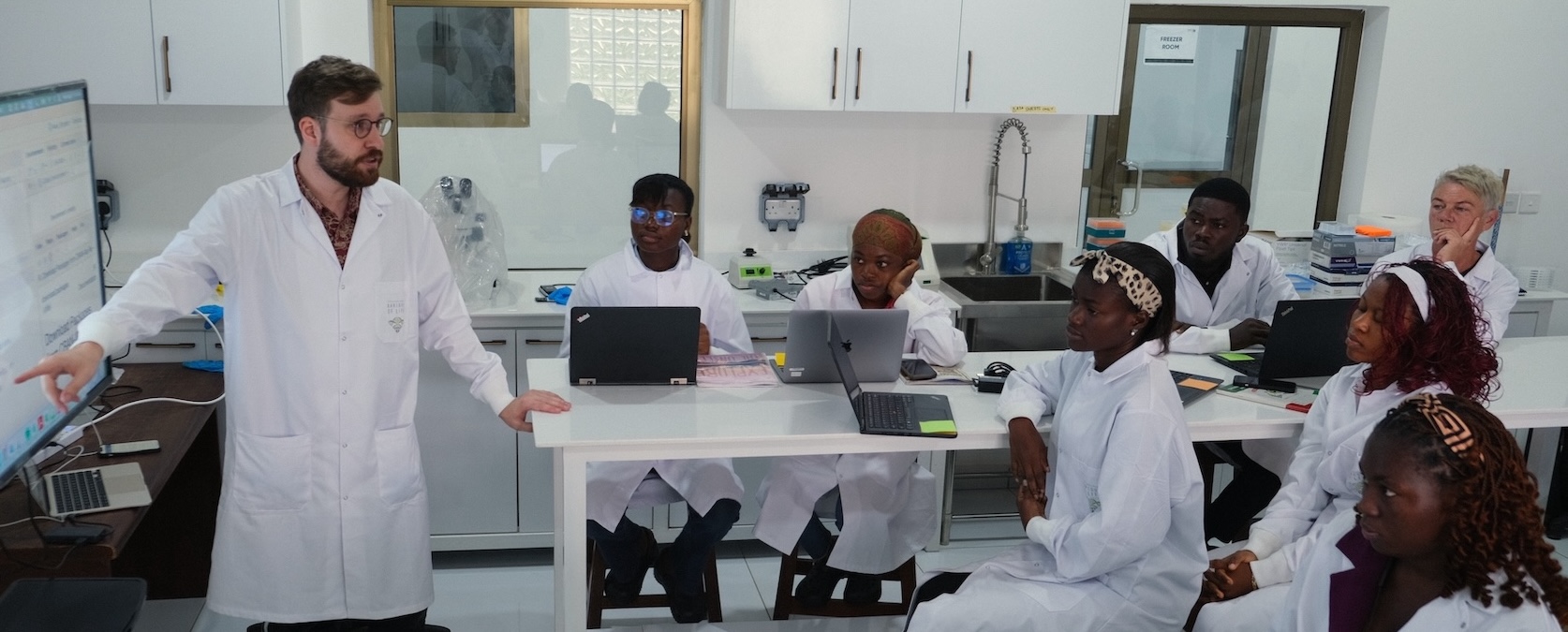Science
University of Guelph Experts Empower Scientists in Peru and Ghana

The University of Guelph’s Centre for Biodiversity Genomics (CBG) has expanded its global outreach by sharing its expertise in DNA barcoding technology with scientists in Peru and Ghana. This initiative aims to enhance scientific capacity in regions rich in biodiversity but lacking advanced molecular biology resources.
Training Future Scientists in DNA Barcoding
This summer, CBG researchers, led by Dr. Ken Thompson and Dr. Spencer Monckton, traveled to Peru and Ghana to conduct workshops for graduate students, researchers, and government officials. The program covered the entire DNA barcoding workflow, from field collection and DNA extraction to sequencing and data analysis.
According to Dr. Paul Hebert, founder of CBG, much of the world’s biodiversity is located in the Global South. He emphasizes the importance of building local scientific capacity: “Our recent training programs in Peru and West Africa were enabled by new sequencing technologies and our development of an integrated package of chemware and analytical software.”
The initiative is part of the International Barcode of Life consortium (iBOL), which unites researchers from over 40 countries to create a comprehensive inventory of Earth’s life through DNA analysis.
Building Bridges in Biodiversity Research
At the University of Ghana, Thompson and Monckton collaborated with Dr. Michelle van der Bank and her team from the University of Johannesburg, engaging 35 participants from Côte d’Ivoire, Ghana, and Guinea. Monckton noted the disparity in access to molecular biology tools: “One of our primary objectives with the workshop was to try and bridge that gap by equipping delegates with the knowledge and skills to access DNA barcoding more easily.”
Through a combination of lectures and hands-on training, participants learned to document biodiversity using DNA barcoding, a method that enhances species identification’s speed and accuracy. The training provided a critical opportunity for participants to develop practical skills in a field that is often less accessible in many regions of Africa.
Thompson, who is also part of CBG’s innovation team, highlighted the dedication of the participants: “These participants had serious drive; they would ask for homework and were often working late into the night. They were eager to learn.” This enthusiasm was evident throughout the program, which involved working with specimens from local ecosystems.
In Lima, the team focused on a diverse range of specimens, including insects and plankton, while in Ghana, the emphasis was on insect collection. By the end of the workshops, each student had completed a project analyzing their data and presented their findings.
Thompson remarked, “If you pair the right instructor and the right student, there are fewer things that could be more impactful or meaningful.” Monckton echoed this sentiment, stating, “When you introduce people to new tools, they can’t wait to put them to work in all kinds of creative ways. It’s exciting to see the positive impact of our work unfold in real time.”
Before concluding their visit, Monckton and Thompson offered continued support to the participants for their future analyses, with several already reaching out for guidance. The team also plans to maintain connections with participants from Peru, who will visit CBG for further exchange opportunities.
Thompson expressed the rewarding nature of this outreach, stating, “There is so much interest in what we do at CBG. Education really is a life-changing opportunity for people.” Through these efforts, CBG continues to strengthen global biodiversity research and empower the next generation of scientists to document and protect the natural world.
-

 Education3 months ago
Education3 months agoBrandon University’s Failed $5 Million Project Sparks Oversight Review
-

 Science4 months ago
Science4 months agoMicrosoft Confirms U.S. Law Overrules Canadian Data Sovereignty
-

 Lifestyle3 months ago
Lifestyle3 months agoWinnipeg Celebrates Culinary Creativity During Le Burger Week 2025
-

 Health4 months ago
Health4 months agoMontreal’s Groupe Marcelle Leads Canadian Cosmetic Industry Growth
-

 Science4 months ago
Science4 months agoTech Innovator Amandipp Singh Transforms Hiring for Disabled
-

 Technology3 months ago
Technology3 months agoDragon Ball: Sparking! Zero Launching on Switch and Switch 2 This November
-

 Education3 months ago
Education3 months agoRed River College Launches New Programs to Address Industry Needs
-

 Technology4 months ago
Technology4 months agoGoogle Pixel 10 Pro Fold Specs Unveiled Ahead of Launch
-

 Business3 months ago
Business3 months agoRocket Lab Reports Strong Q2 2025 Revenue Growth and Future Plans
-

 Technology2 months ago
Technology2 months agoDiscord Faces Serious Security Breach Affecting Millions
-

 Education3 months ago
Education3 months agoAlberta Teachers’ Strike: Potential Impacts on Students and Families
-

 Science3 months ago
Science3 months agoChina’s Wukong Spacesuit Sets New Standard for AI in Space
-

 Education3 months ago
Education3 months agoNew SĆIȺNEW̱ SṮEȽIṮḴEȽ Elementary Opens in Langford for 2025/2026 Year
-

 Technology4 months ago
Technology4 months agoWorld of Warcraft Players Buzz Over 19-Quest Bee Challenge
-

 Business4 months ago
Business4 months agoNew Estimates Reveal ChatGPT-5 Energy Use Could Soar
-

 Business3 months ago
Business3 months agoDawson City Residents Rally Around Buy Canadian Movement
-

 Technology2 months ago
Technology2 months agoHuawei MatePad 12X Redefines Tablet Experience for Professionals
-

 Business3 months ago
Business3 months agoBNA Brewing to Open New Bowling Alley in Downtown Penticton
-

 Technology4 months ago
Technology4 months agoFuture Entertainment Launches DDoD with Gameplay Trailer Showcase
-

 Technology4 months ago
Technology4 months agoGlobal Launch of Ragnarok M: Classic Set for September 3, 2025
-

 Technology4 months ago
Technology4 months agoInnovative 140W GaN Travel Adapter Combines Power and Convenience
-

 Science4 months ago
Science4 months agoXi Labs Innovates with New AI Operating System Set for 2025 Launch
-

 Top Stories2 months ago
Top Stories2 months agoBlue Jays Shift José Berríos to Bullpen Ahead of Playoffs
-

 Technology4 months ago
Technology4 months agoNew IDR01 Smart Ring Offers Advanced Sports Tracking for $169










